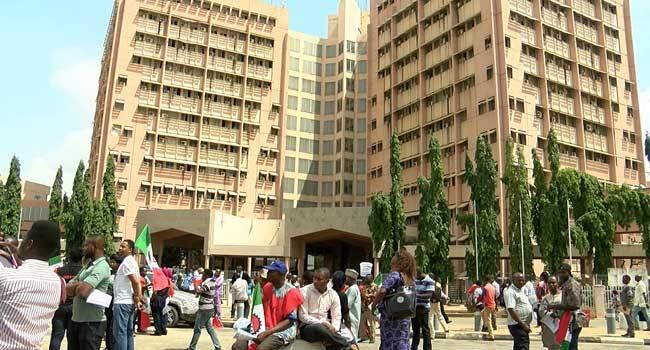The civil servants, who spoke to the News Agency of Nigeria (NAN) on Sunday in Abuja, said that it was frustrating given the country’s current economic situation.
They demanded an immediate reduction in the PAYE tax deducted from their monthly salaries.
They said that the huge amount of tax deducted from their monthly salaries had reduced their purchasing power going by the increasing price of goods and services.
Mrs Ese Williams, a civil servant, urged the Federal Government to revisit the issue of income tax, which had placed a huge burden on finances of civil servants.
She said that the new minimum wage had not substantially improved the monthly earnings of government workers, yet the taxes remain high.
“Imagine a level 15 officer with a monthly salary of less than N400,000 paying almost about N60,000 tax. It is alarming, ” she said.
Mr Ibrahim Abbas complained that policies of the Federal Government appeared to be designed against federal civil servants.
Abbas urged the Federal Government to urgently revisit the issue of taxes that the civil servants were made to pay and also initiate policies to improve their welfare.
“I do not even see any reason to justify the high tax regime that we are subjected to in recent times.
“While we were expecting improvement in our welfare, every policy, from removal of fuel subsidy to floating of the Naira appears to be against government workers.
“The Federal Government will need to take a second look on this issue of high taxes, ” he said.
Mr Aliu Sule complained that there was no infrastructure on ground to justify the huge taxes being deducted from salaries of civil servants.
“We still provide most necessities for ourselves. From security to electricity and water, we devise ways to provide all these for ourselves, so there is no justification to increase our taxes, ” he said.
The President, African Development Bank (AfDB), Dr Akinwumi Adesina, called for greater accountability and transparency in the management of national resources.
Speaking recently at a retreat of the Council of Anglican Provinces of Africa (CAPA), Adesina urged the Federal Government to be more responsive to the needs of the people.
According to him, paying taxes while having to dig your wells, provide generators for your house, and build roads to your home is a thing of concern.
He said that national resources belonged to the people and should be managed transparently and responsibly by the government.
“Citizens must uphold their responsibilities, but governments must be held accountable.
“There must be transparency, public property, accountability, and responsiveness in the way these resources are used to transform the society.
“In Scandinavian countries, when people pay taxes, there is a responsibility on the part of governments to provide what society needs,” he said.
The News Agency of Nigeria (NAN) reports that all Nigerian residents aged 18 and above earning income from Nigerian sources are required to file personal income tax returns.
This includes salaried employees, self-employed individuals, and those with other sources of income such as investments, rental income, or business income.
Meanwhile, the Chairman, Presidential Advisory Committee on Fiscal Policy and Tax Reform, Taiwo Oyedele, said that the proposed tax reform bills would address the situation.
Oyedele said that individuals earning about N1.7 million or less per month will pay lower PAYE tax under the proposed bills.
He said that workers earning the new minimum wage of N70,000 and slightly more would also be fully exempted from tax obligations.
Oyedele said that these thresholds would result in over 90 per cent of workers in the public and private sectors paying lower taxes.
According to him, high income earners will pay slightly more in a progressive manner up to 25 per cent for the ultra-high net worth individuals.
Oyedele’s explanation came against the backdrop of general concerns that workers might pay more under the proposed tax reform initiatives.
He said that planned changes to the current tax table of personal income brackets and rates were to discourage arbitrage in some cases between the two income tax regimes.
He said that the current tax table was introduced in 2011.
“Due to high inflation and lack of review, the structure had resulted in fiscal drag, where many low income earners have been pushed to the top tax bracket over time.
“This meant that an individual earning just N400,000 a month was paying the same top marginal income tax rate as a wealthy individual earning about N20 million per month.
“The tax table has become regressive rather than progressive as it was originally designed,” he said.(NAN)











